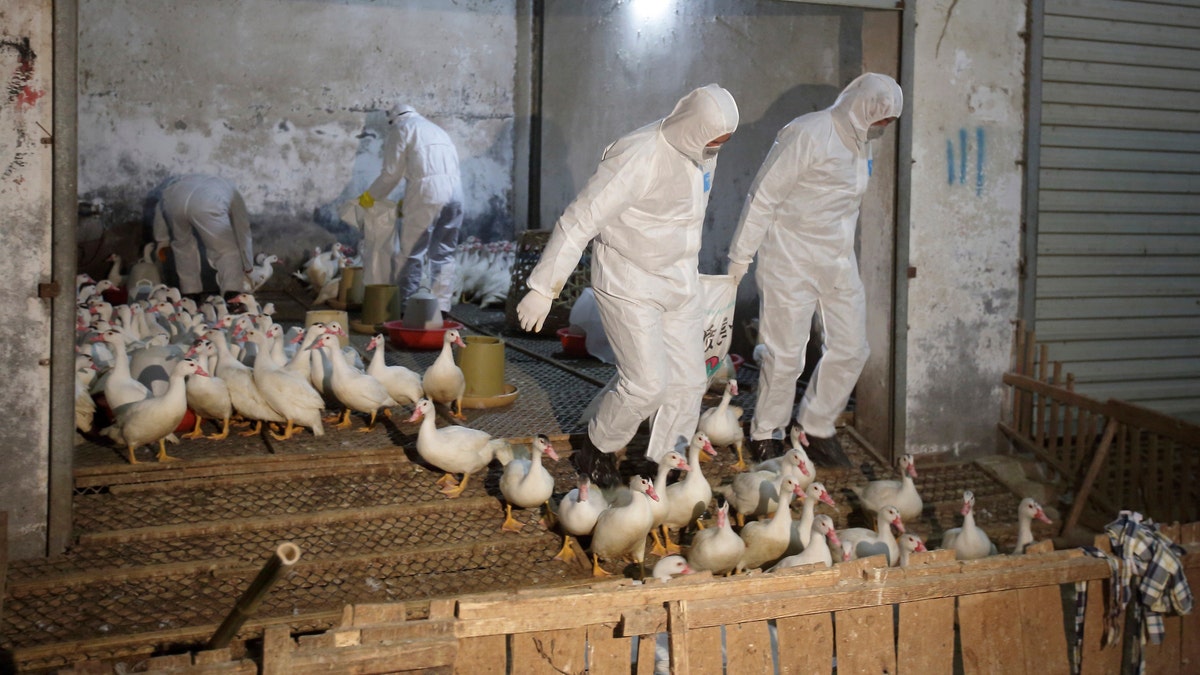
Health officials in protective suits transport sacks of poultry as part of preventive measures against the H7N9 bird flu at a poultry market in Zhuji, Zhejiang province January 6, 2014. (REUTERS/Stringer)
Another seven people in China have been infected with the new and often deadly H7N9 strain of bird flu, the World Health Organization (WHO) said on Monday, adding to at least 24 new cases last week and confirming a fresh wave of the virus.
One of the seven cases, which were reported from four different provinces of China, was in a 38 year-old man who died on January 9. The remaining six patients are in either a serious or critical condition in hospitals, WHO said.
Several had reported recent exposure to poultry or poultry markets, but WHO said the source of infections is still under investigation.
The H7N9 bird flu virus emerged in March last year and has so far infected at least 175 people in China, Taiwan and Hong Kong, killing around 50 of them.
Several clusters of cases in people who had close contact with an infected person have been reported in China, but WHO reiterated on Monday that "so far, there is no evidence of sustained human-to-human transmission".
Experts say the Northern Hemisphere's winter flu season is probably largely to blame for a significant increase in the number of cases of human H7N9 infection in recent weeks after they dwindled to almost nothing in July and August of 2013.
But they have cautioned that public health authorities and doctors must be on alert for any signals that the more widely circulating virus might be adapting or mutating to become easily transmissible between people.
